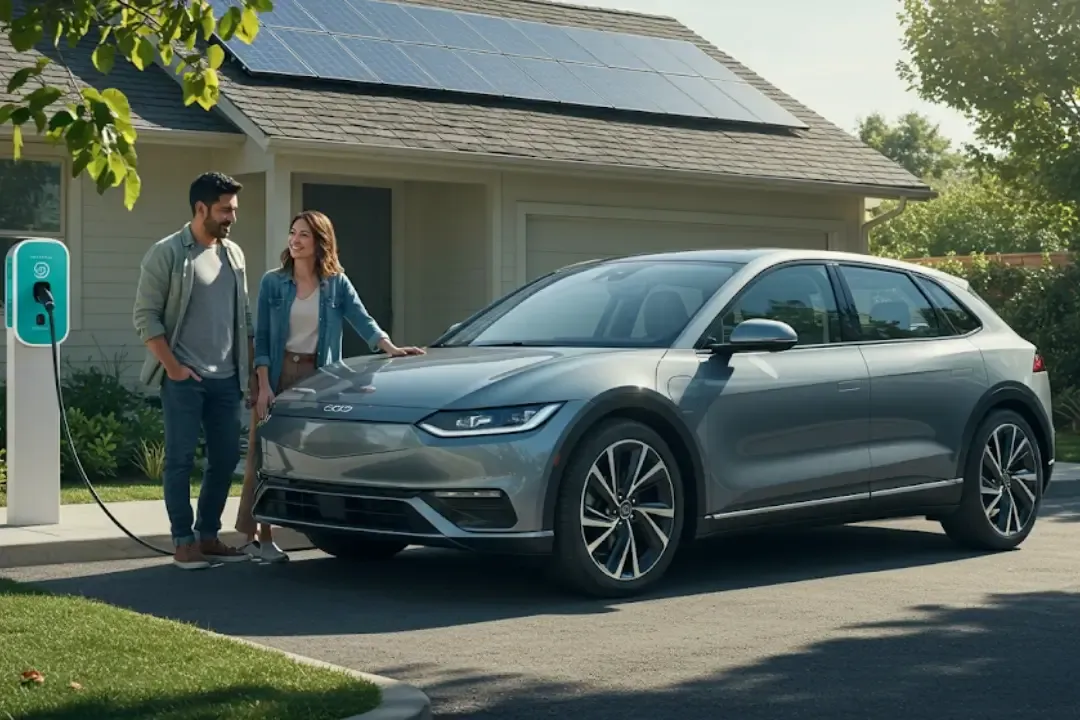Electric vehicles (EVs) are revolutionizing the automotive industry, offering a cleaner, greener alternative to traditional gas-powered cars. With advancements in technology and increasing government incentives, buying an EV has become more accessible than ever. However, making the switch from a conventional car to an electric vehicle requires careful consideration. To help you make an informed decision, we've compiled a list of the 10 most important things to consider before buying an EV.
What to Know Before Purchasing an Electric Vehicle
1. EV Range: Does It Meet Your Driving Needs?
One of the most important factors to consider when buying an EV is its range—how far the vehicle can travel on a single charge. Assess your daily driving habits and determine whether the EV's range aligns with your needs. For example, if you frequently take long road trips, you may want to consider a model with a longer range, such as the Tesla Model 3 or BMW i4.
➡️ Related Read: The Hidden Truth About EV Specs: How to Choose the Right Electric Car Like a Pro!
2. Charging Infrastructure: Is It Convenient for You?
Charging your EV is not as simple as filling up a gas tank. Before purchasing, research the availability of charging stations in your area. If you plan to charge at home, consider the costs and logistics of installing a Level 2 home charger.
Learn more about the U.S. Department of Energy's EV Charger Locator to find charging stations near you.
3. Total Cost of Ownership
While EVs often have higher upfront costs, they can save you money in the long run through lower fuel and maintenance expenses. Factor in the total cost of ownership, including electricity rates, government incentives, and potential tax credits.
➡️ Government Incentives and Tax Credits for EV Buyers: How to Save Big in 2025
4. Battery Life and Warranty
The battery is the heart of an electric vehicle, so understanding its lifespan and warranty is critical. Most EV manufacturers offer warranties that cover the battery for 8 years or 100,000 miles. Be sure to ask about potential battery replacement costs and degradation rates over time.
5. Maintenance Costs
EVs generally have fewer moving parts than traditional cars, which translates to lower maintenance costs. However, it's still essential to consider specific maintenance needs, such as tire replacements and brake servicing.
6. Performance and Driving Experience
Modern EVs are known for their smooth acceleration and quiet performance. Evaluate whether the driving experience aligns with your preferences. Test-driving different models can help you decide which EV suits you best.
➡️ 2025 BMW i4 vs. Polestar 2 vs. Tesla Model 3: Which EV Comes Out on Top?
7. Charging Speed
Charging speed can vary significantly between EV models. Understand the difference between Level 1, Level 2, and DC fast charging, and ensure your preferred EV supports the charging speed you need. For instance, if you have a busy lifestyle, fast-charging capabilities might be a priority.
8. Environmental Impact
While EVs are more environmentally friendly than gas-powered cars, their overall impact depends on how electricity is generated in your region. Consider the source of electricity in your area and whether the EV aligns with your sustainability goals.
➡️ Are EVs Really Better for the Environment? The Truth Revealed
9. Available Incentives and Tax Credits
Governments worldwide offer various incentives to encourage EV adoption, including rebates, tax credits, and reduced registration fees. Research the incentives available in your region to maximize your savings.
Visit FuelEconomy.gov for the latest federal and state tax credits.
10. Resale Value
EV technology evolves rapidly, which can impact the resale value of older models. Investigate the depreciation rates of various EVs to ensure you're making a financially sound investment.
Why Electricar is Your Trusted EV Resource
Purchasing an electric vehicle is a significant decision, and having access to reliable information is crucial. At Electricar, we provide in-depth guides, comparisons, and the latest news to help you make informed choices. Explore our comprehensive resources on topics like How to Transition From Gas to Electric Vehicles and Shocking Driving Habits That Are Secretly Killing Your EV Battery.
Conclusion
Buying an electric vehicle is an exciting step toward sustainable living, but it requires thorough research and planning. By considering these 10 factors—such as range, charging infrastructure, and total cost of ownership—you can find an EV that perfectly suits your needs. For more expert advice and resources, visit Electricar, your ultimate destination for all things EV.
Call to Action: Subscribe to our newsletter and stay updated with the latest EV trends, tips, and insights!

